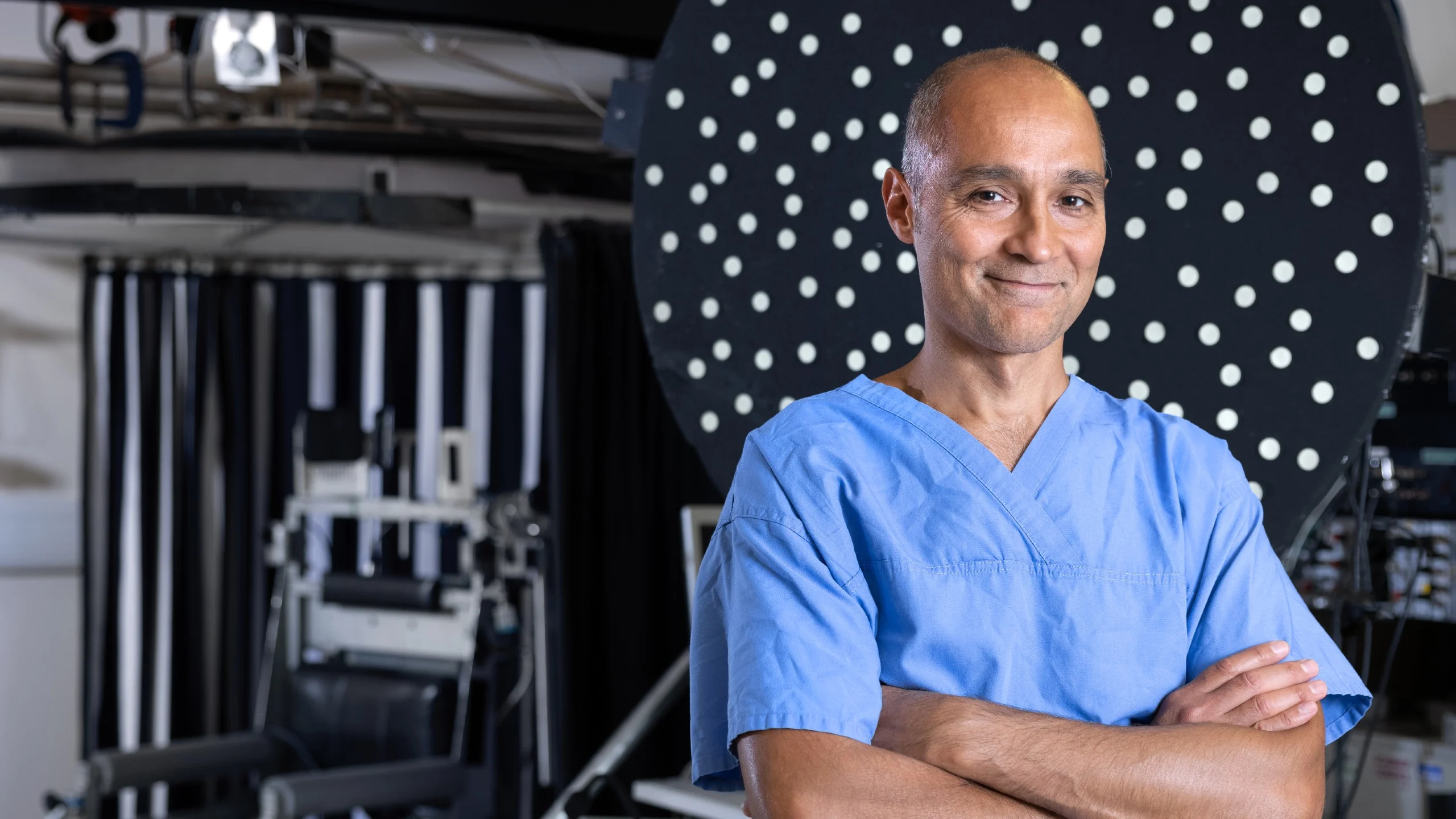"I encourage everyone to bring who they are to work"

Dr Barry Seemungal
Honorary clinical senior lecturer and consultant neurologist, Department of Brain Sciences
A pathway to medicine
"As a young boy growing up in Trinidad, I had a lot of time on my hands. I would draw and flick through encyclopaedias with curiosity looking at pictures and entries describing things I didn’t understand. Luckily, I haven’t lost this child-like curiosity and creativity, both of which are crucial to my job.
I came to the UK with my family in 1984 at the age of 17 and began my A-levels here. I like change, so I was really looking forward to the move. Once in the UK, I remember a teacher asking me what I wanted to study at university during my A-levels. I never really had a plan to study medicine. Growing up, no one in my family was a doctor. My answer to the teacher ‘how about medicine?’ probably reflected a failure of imagination at the time.
I haven’t lost this child-like curiosity and creativity, both of which are crucial to my job.
In any case, three decades later I’m an expert in brain conditions that affect balance and spatial orientation. Our current research includes studies in traumatic brain injury and neurodegenerative disorders such as Parkinson’s disease and Alzheimer’s disease.
Culture shock
There are some interesting comparisons between life in Trinidad and the UK (and let’s not mention the weather!) When I first came to the UK, I found it difficult to understand the class system; for example, why children from more privileged backgrounds would be more likely to study and perform better in school seemed nonsensical to me.
I feel strongly about equality of opportunity for education
I feel strongly about equality of opportunity for education. In Trinidad, the best schools are non-fee paying, and access is not determined by where you live or who your parents are.
An equal playing field
Although I went to a non-fee paying government-supported Catholic secondary school, I had classmates of all religions.
Many of my classmates came from extremely humble backgrounds with limited electricity and water; crucially, this was no impediment to their success. Key to their success was a deep understanding that we were all equals in school. I think this informs how I work with people.
I trust team members to get the task done and making mistakes tells me that the team are taking things to the edge – which is what I want from them.
I treat neurology trainees as my equal. Similarly, I have a horizontal hierarchy in my research group. Although I provide the direction, I trust team members to get the task done and making mistakes tells me that the team are taking things to the edge – which is what I want from them.
Representation and participation
It is very important to me that my research team is diverse in skills, personalities and cultural background.
This diversity is not only good for the science but also improves the enjoyment of going to work, which is critical as only happy people deliver their full potential. I therefore encourage everyone to bring who they are to work.
It is a fact that all individuals and institutions have implicit biases, and only in accepting this fact can we work to offset the effects these biases have.
I think this should be taken forward with real intent – not just because it ‘looks good’.
Two of the things Imperial needs to do is (i) directly target secondary schools and (ii) have real intent when talking about widening participation.
More locally, appointments committees (and I include those on which I have sat or chaired), should be composed of a sufficient number of panel members from a variety of backgrounds to guarantee wider representation.
I think this should be taken forward with real intent – not just because it ‘looks good’."
Barry shares his story as part of Shifting the Lens: a celebration of cultural diversity at Imperial.
This interview was edited by Martha Salhotra and photographed by Thomas Angus.